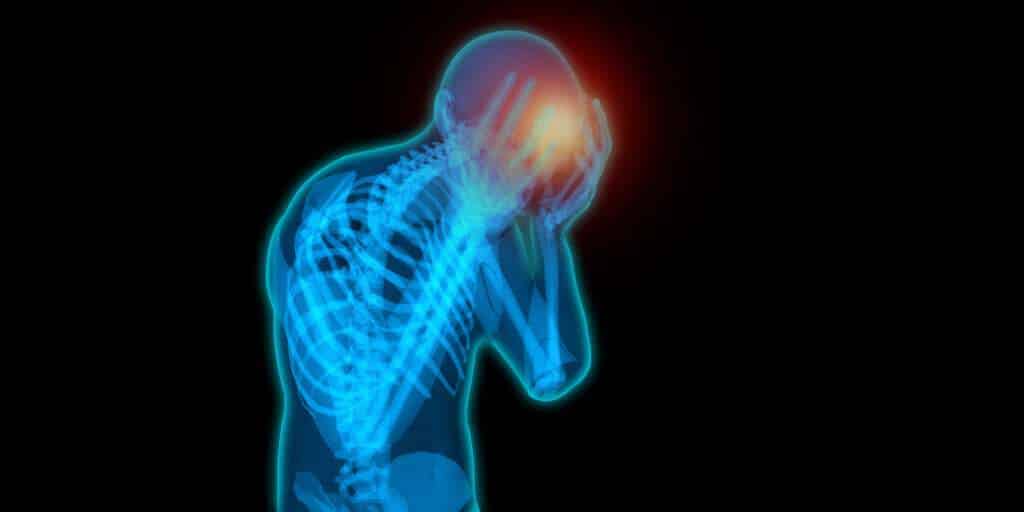 If you suffer from chronic pain, I’m sure you’ve been to many types of doctors to try to find any bit of relief. It’s likely that a Psychologist was not one of the doctors you sought treatment from. You may be thinking, “How can a Psychologist help with my chronic pain? It’s a physical issue, not a mental one.” I’ve heard this from many clients who were initially skeptical about how therapy could help them manage their chronic pain.
If you suffer from chronic pain, I’m sure you’ve been to many types of doctors to try to find any bit of relief. It’s likely that a Psychologist was not one of the doctors you sought treatment from. You may be thinking, “How can a Psychologist help with my chronic pain? It’s a physical issue, not a mental one.” I’ve heard this from many clients who were initially skeptical about how therapy could help them manage their chronic pain.
While chronic pain usually has physical underpinnings, it also has a bi-directional relationship with mental health. That means that chronic pain can impact your mental health (e.g., low mood, poor quality of life, social withdrawal) and your mental health can impact your chronic pain (e.g., increased sensitivity to pain). That is why it’s important to treat chronic pain with both physical and mental health factors in mind!
Here are 7 ways therapy can help you manage your chronic pain and improve your quality of life:
1. Improve mood
Let’s face it. When we’re in pain, we’re usually not in the greatest mood. In fact, chronic pain often co-occurs with mental health issues such as depression, anxiety, and substance use disorders. Therapy can help you process and overcome the emotional challenges that often go hand-in-hand with chronic pain. Additionally, improvements in your mood may also lead to reduced pain intensity, which is always a plus!
2. Increase mobility
Many individuals with chronic pain drastically decrease their physical activity in an attempt to avoid further pain. Regular physical activity is actually a key piece to managing chronic pain because it helps to build strength/flexibility, decrease pain flare-ups, and improve mood. Therapy can help you gradually increase your mobility in a way that is safe, effective, and gets you back to a more functional daily routine.
3. Reduce tension
Chronic pain acts as a chronic stressor on the body. Chronic stress leads to tension that can be felt emotionally and/or physically, which can exacerbate the intensity of your pain and worsen your overall physical health. In therapy, you can learn various relaxation strategies that not only calm your mind, but your muscles as well.
4. Increase social/recreation time
Many people dealing with chronic pain find themselves withdrawing from the social or recreational activities they used to enjoy. Some fear what will happen if they have a pain flare-up while out at a social event. Others experience anger and frustration that they can’t engage in their hobbies like they used to. However, withdrawing from these enjoyable experiences just makes us feel worse in the long run. A chronic pain therapist can help you re-engage in pleasant activities and modify them to meet your physical needs. Therapy can also help you remain consistent with these activities and overcome the tendency to avoid or withdraw.
5. Improve sleep
Many people dealing with chronic pain also suffer from sleep difficulties. When we are not getting adequate sleep, our body does not have the opportunity to engage in its natural reparative process, which can lead to increased pain sensitivity, decreased energy, and poor focus, among other consequences. A therapist can help you identify the factors interfering with your sleep and help you implement healthier sleep habits so you can wake up feeling more refreshed.
6. Reduce negative thinking
Individuals dealing with chronic pain often have negative, and sometimes catastrophic, thoughts related to their pain, such as “I can’t take it anymore” and “what if something serious happens?” When thoughts like this occur too frequently, they can worsen your mood, intensify your pain, and make you feel helpless. Working with a therapist can help you identify these negative thoughts and learn how to create more adaptive and helpful thought patterns.
7. Improve coping skills
Many Individuals with chronic pain do not know how to cope with their pain, which can leave them feeling helpless and frustrated. Some may resort to unhealthy coping strategies such as avoidance or substance use. By engaging in therapy, you can learn various healthy coping skills that will help you feel more confident in your ability to manage your condition.
While therapy is not a cure for chronic pain, it can help you better manage your pain and reduce the negative impact of pain on your daily life. If you are interested in therapy to help manage your chronic pain, contact our team to set up an appointment.
Written By: Victoria Hrzich, Psy.D.

